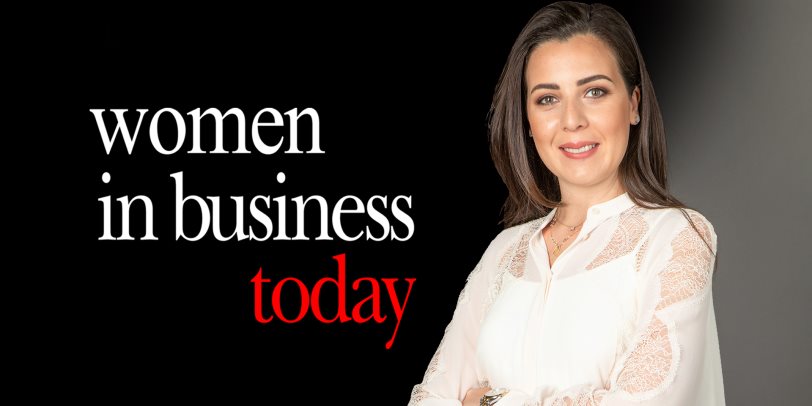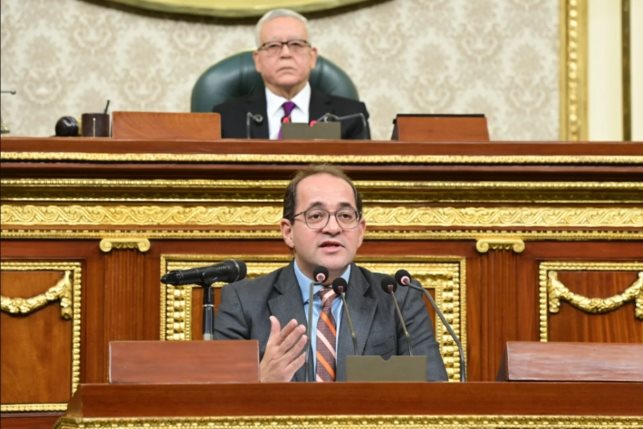Zeina Tawakol on Embracing Challenges to Bring Forth Impactful Change
Dynamic, resilient, and a changemaker, Zeina Tawakol, Executive Director at Magdi Yacoub Heart Foundation leads a purposeful life, thriving on changing as many lives as possible

Dynamic, resilient, and a changemaker, Zeina Tawakol, Executive Director at Magdi Yacoub Heart Foundation leads a purposeful life, thriving on changing as many lives as possible. With extensive experience in the fields of sustainable development and healthcare policy, Zeina juggles many roles, relentlessly leaving a positive imprint wherever she is to lead.
Besides her role as the Executive Director of the Magdi Yacoub Heart Foundation, one of the largest charitable foundations in Egypt, Tawakol is a member of the Clinton Global Initiative ‘Commit to Action’ team, serves as an Advisor to multiple boards in Egypt and the UK in the fields of healthcare accessibility and sustainable development.
Describe yourself with a quote from a book, movie, or television show.
I have recently watched a movie called “Little Women” based on a book written by Louisa May Alcott, one quote from this movie/book that stuck with me was "I am not afraid of storms, for I am learning how to sail my ship."
The reason that this quote resonates with me, is it encapsulates my resilient and adventurous character or spirit. Similar to the character in the movie, I embrace challenges and opportunities for growth and self-discovery, navigating life’s storms with courage and determination. It addresses my belief in facing obstacles, in my personal or professional life, head-on – learning from adversity, and emerging stronger and wiser on the other side.
You wear many hats: Executive Director, board advisor, policy expert... what's the most exciting part of your daily work?
 Zeina Tawakol, Executive Director at Magdi Yacoub Heart Foundation
Zeina Tawakol, Executive Director at Magdi Yacoub Heart Foundation
As the Executive Director of one of the largest charitable organizations in Egypt, I am fortunate to wear many hats, from providing guidance as a board advisor to shaping policies as an expert in the field. However, the most exhilarating aspect of my daily work lies in the opportunity to lead impactful initiatives that directly benefit our community and beyond.
Every day presents opportunities to leverage our resources, networks, and expertise to address pressing cardiovascular health issues, drive meaningful change, and improve the lives of those we serve. Whether it's spearheading innovative programs, forging strategic partnerships, or advocating for important causes, each day presents unique challenges and opportunities to drive positive change. The dynamism of my role keeps me engaged and motivated, as I work diligently to make a tangible difference in the lives of those we serve and leave a lasting legacy of philanthropy and compassion.
The Magdi Yacoub Heart Foundation offers life-changing care for many. Can you share a story that has personally impacted you?
Healthcare accessibility is a paramount passion of mine, and I fervently dream of a world where everyone has unfettered access to quality healthcare without the burden of financial constraints. In my view, access to healthcare is a fundamental human right that should be universally upheld.
One touching story that continues to resonate deeply with me occurred during my time at the Aswan Heart Centre. An Elderly, visibly frail woman approached me at the reception, seeking directions to the "for a free or economical section of the hospital." Despite my assurances that all our services are provided free of charge, she remained apprehensive, expressing her inability to afford treatment elsewhere.
Her reluctance to believe that such compassionate care could be provided without financial strain struck a chord within me. It emphasized the profound need for healthcare facilities that not only offer medical treatment but also foster an environment of dignity, respect, and security for every individual, regardless of their financial circumstances.
This encounter served as a poignant reminder of the vital importance of our work and the transformative impact it has on the lives of those we serve. It reinforced my belief that every action we take, no matter how seemingly small, contributes to the noble cause of saving and improving lives.
If you were in front of a nonprofit board, what’s one piece of advice you would give them?
If I were in front of a non-profit board, one piece of advice I would offer is to prioritize transparency and communication. It's essential for the board to maintain open channels of communication with stakeholders, including donors, staff, and the communities they serve.
Transparent communication fosters trust, accountability, and engagement, enabling the organization to build stronger relationships and achieve its mission more effectively. Additionally, regular updates and clear communication about the organization's goals, challenges, and successes empower stakeholders to feel connected to the cause and inspired to support its efforts.
By prioritizing transparency and communication, non-profit boards can cultivate a culture of collaboration and accountability that drives positive impact and sustainable growth.
You juggle a demanding career with various leadership roles. How do you create space for yourself to recharge and maintain your peace of mind?
Balancing a hectic career with leadership roles can definitely be a juggling act, but making time for myself is key to staying grounded and recharging. I prioritize carving out little pockets of me time throughout the day, whether it's enjoying a morning cup of coffee in peace or walking to and from the office.
I also make sure to disconnect from work emails and notifications for a couple of hours after work hours to be able to unwind and spend quality time with my kids before bedtime. And on weekends, you'll often find me indulging in hobbies like reading a good book—whatever helps me recharge and maintain my peace of mind. It's all about finding that balance and making self-care a non-negotiable part of my routine!
Beyond your impressive accomplishments, what are you most proud of outside of work?
Beyond my professional accomplishments, what I'm most proud of outside of work is my role as a mother. Being able to nurture and support my children as they grow and learn fills me with immense joy and fulfillment. Seeing them navigate the world with curiosity, kindness, and resilience brings a sense of pride that surpasses any career achievement.
Additionally, I take great pride in my involvement in community service and volunteering. Being able to give back to others and make a positive impact in my community is incredibly rewarding and meaningful to me. These experiences remind me of the importance of compassion and empathy. These aspects of my life outside of work bring me a sense of purpose and fulfillment that I cherish deeply, and they complement and enhance my professional endeavors in meaningful ways.
What’s a leadership challenge and lesson that you’ve learnt that’s unique to being a female leader?

One of the challenges I've faced as a female leader is navigating the delicate balance between assertiveness and likability. In some situations, displaying assertiveness and confidence can be perceived differently for women compared to men, often leading to the label of being "bossy" or "aggressive." Finding the right balance between being assertive while maintaining empathy and approachability has been a valuable lesson for me.
A key lesson I've learned is the importance of owning my leadership style and embracing authenticity. Instead of conforming to traditional leadership stereotypes, I've found strength in being true to myself and leading with empathy, inclusivity, and collaboration. By leveraging my unique strengths and perspectives as a female leader, I've been able to foster a more inclusive and supportive work environment where diverse voices are valued and respected.
Overall, this journey has taught me to embrace the challenges, celebrate my achievements, and continue advocating for gender equality in leadership roles. It's a continual learning process, but one that has ultimately made me a stronger and more effective leader.
Is being a female leader what you imagined it to be like?
It is different from what I imagined! Being a female leader has been both different and rewarding from what I initially imagined. While I anticipated the challenges of breaking through gender biases and navigating male-dominated spaces, I've also encountered unexpected moments of empowerment and camaraderie among fellow female leaders from different organizations, whom I am very happy to call my friends. This is something that exceeded my expectations, the sense of support within our community as female leaders. Through our small get-togethers or networking events, and shared experiences, I've found a supportive network of women who uplift and empower each other, fostering a sense of friendship and collaboration.
On the other hand, you can’t hide from the realities of gender inequality and unconscious biases in the business setting, I am proud to say that at Magdi Yacoub Heart Foundation such realities are well addressed and therefore not felt. But within the outer space of our organization such biases presented unique challenges to overcome. However, these challenges have only fueled my determination to challenge stereotypes, advocate for gender equality, and pave the way for future generations of female leaders.
Overall, while being a female leader has its challenges, it has also been incredibly fulfilling and empowering. It's a journey of growth, resilience, and breaking barriers, and I'm grateful for the opportunity to make a positive impact and inspire others along the way.
What’s one personal trait that gets you in the most trouble?
I can’t really think of a trait that gets me in trouble. But one trait I've recognized in myself that I aim to change is my tendency to avoid confrontation. While I value harmony and positive relationships, I understand that avoiding difficult conversations can sometimes lead to unresolved issues or misunderstandings. Moving forward, I'm committed to cultivating assertiveness and communication skills that allow me to address concerns openly and constructively. By embracing healthy confrontation, I can nurture stronger relationships and navigate challenges more effectively in both personal and professional settings.
Imagine you have a magic wand and can instantly change one thing about healthcare accessibility in Egypt. What would it be and why?
If I had a magic wand to instantly change one thing about healthcare accessibility in Egypt, I would ensure that the new Universal Health Insurance System is rolled out to cover all Egyptian citizens straight away. The universal health insurance system is a comprehensive healthcare system that provides affordable and equitable access to essential medical services, medications, and preventive care measures for every individual in Egypt. The six-phase scheme started experimentally in Port Said in 2018 and later expanded to Luxor, Ismailia, South Sinai, Suez, and Aswan.
The reason for prioritizing the accessibility of a universal healthcare system is simple: no one should ever have to forgo necessary medical treatment or face financial hardship due to healthcare costs. By ensuring that everyone has access to timely and affordable healthcare services, we can significantly improve public health outcomes, reduce health disparities, and enhance the overall quality of life for individuals and communities across Egypt.
It is well-studied that a comprehensive Universal healthcare system would promote economic stability and social justice by alleviating the financial burden of medical expenses on families, allowing them to invest in education, housing, and other essential needs. As well as, fostering a healthier and more productive workforce, ultimately contributing to the socioeconomic development and prosperity of the nation as a whole.





